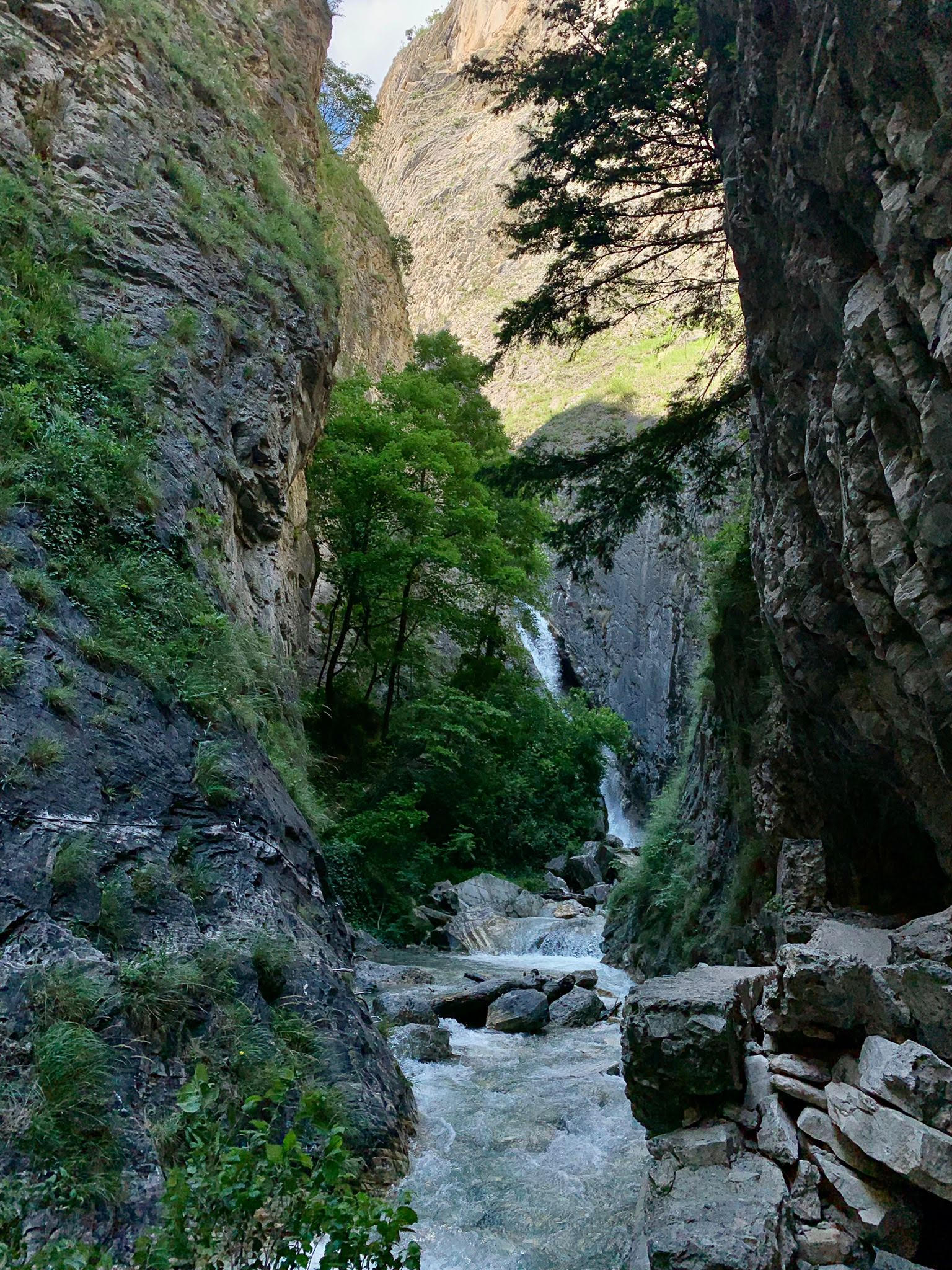Musica Techno, una vipera striscia tra le pietre mentre la luce cremisi del tramonto illumina il volto in trance di una sciamana africana. Cesare è un tassista cinico e solitario. Lavora in una città di confine e arrotonda i guadagni portando clandestinamente i migranti dall’Italia alla Francia, al soldo del tenente Garcia, un gendarme corrotto e spietato che lo taglieggia. Quando incontra Stella, una donna schiacciata dai debiti e dai rimorsi, trova il coraggio di credere ai propri sogni e lasciare la città insieme a lei. Appena prima della partenza, però, il tragico passato della donna torna a galla, mettendola in pericolo. Cesare decide di aiutarla, trovando un inaspettato alleato in Ahmed, un immigrato clandestino che sta cercando disperatamente di attraversare il confine per ricongiungersi alla propria moglie incinta. In una rincorsa disperata, tra paura e desiderio, Cesare riuscirà ad uccidere Garcia e a mettere in salvo Stella. Ma scoprirà che il suo cammino di redenzione è solo all’inizio.
Quello che abbiamo ritrovato nel progetto Apache 77, scritto da Giovanni Aloi (già autore e regista del bellissimo film "La troisième guerre", uno spaccato sociale potente di un giovane appena uscito dal campo di addestramento dell’esercito francese, presentato a Orizzonti nel 2020) insieme a Nicolò Galbiati e Giovanni Tetti, è una miscela innovativa di ingredienti che, a partire da elementi di critica sociale costruisce un film dall’estetica western. E proprio nella natura ibrida del film è insita la sua originalità creativa: sotto il flusso incalzante della trama e degli elementi di genere, si muovono correnti sotterranee che raccontano in maniera realistica una varia umanità, ispirandosi a storie vere per trascenderle in una poesia del quotidiano. La scelta di raccontare il tema della migrazione utilizzando i codici e gli archetipi del cinema di genere, in particolare attraverso il western, fanno del film e quindi del racconto, non un semplice dramma sociale, ma qualcosa che va oltre e che ne amplifica la rilevanza artistica, culturale e spettacolare. La sceneggiatura cattura istanti della realtà contemporanea, elaborando storie vere e documentante dagli autori durante le loro ricerche (i tassisti trafficanti, oppure i rocamboleschi tentativi dei migranti di passare il confine, la corruzione degli agenti di polizia preposti al controllo della frontiera) andando poi a trascendere questi elementi nel racconto di una umanità in bilico, solitaria e a tratti disperata. La scelta di trasportare il western ai nostri confini segna la lettura profonda e intelligente che gli autori danno al genere: se il western racconta un territorio essenzialmente senza regole, nel quale i protagonisti si muovono, questa stessa situazione si ritrova alle frontiere, spazi dove le leggi sono sospese, e inizia la ricerca disperata della sopravvivenza. Apache 77 ha tutte le caratteristiche per essere un film di ampio respiro internazionale, capace di inserire le questioni sociali legate alla migrazione in un originale intreccio che rielabora e riscrive gli archetipi di generi universalmente riconosciuti e amati, all’interno di un prodotto molto duttile che si presta per attrarre sia un’audience più ricercata, attenta ai film d’autore, ma anche un’audience più ampia, attratta dalla spettacolarità e dall’azione scenica.
Soggetto
Giovanni Aloi, Nicolò Galbiati, Giovanni Tetti
Sceneggiatura
Giovanni Aloi, Nicolò Galbiati, Giovanni Tetti
Altri credits
Manuela Melissano (Responsabile sviluppo)
Produttore
Carlo Cresto Dina, Manuela Melissano
